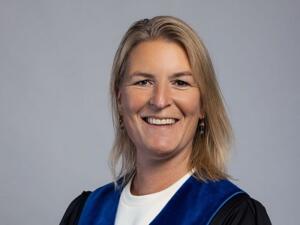Novartis fights Accord’s UPC lawsuit with Bristows
Accord has filed a declaration of non-infringement against Novartis at the UPC central division Milan. The case concerns the active ingredient nilotinib for treating rare cancers. The market entry of generic products appears imminent.
3 January 2025 by Mathieu Klos
Lawsuits concerning medicinal products are still a rarity at the Unified Patent Court. Alexion is in dispute with Amgen and Samsung Bioepis over Soliris, a drug for treating rare blood diseases. Amgen and Sanofi extended their epic battles over the cholesterol-lowering drugs Repatha and Praluent respectively. Sanofi has also challenged various generics manufacturers such as Accord over cancer drug cabazitaxel, while GSK sued Pfizer over a patent regarding an RSV vaccine.
But compared to the number of mobile communications and medical devices cases, pharmaceutical cases at the UPC are still few and far between. Now, however, the next major dispute is on the horizon. Accord filed a declaration of non-infringement with the Milan central division at the end of November. Andrea Postiglione will lead the case as presiding judge, assisted by Dutch judge Marije Knijff.
The secret sauce
The exact motions are not known to JUVE Patent. What is certain, however, is that Accord wants to establish that its product for the active ingredient nilotinib does not infringe Novartis patent EP 2 501 384. The patent protects a method of treating proliferative disorders and other pathological conditions mediated by BCR-ABL, C-KIT, DDR1, DDR2 or PDGF-R kinase activity. In simpler terms, it protects the administration of the active ingredient nilotonib together with apple sauce.
- Andrea Postiglione
- Marije Knijff
Nilotonib is an anti-cancer medication used to treat chronic myelogenous leukemia (CML) but Novartis is also currently researching its use in Alzheimer’s disease. The company sells nilotonib under the brand name Tasigna. Nilotonib is mainly administered in the form of capsules. Novartis recommends taking the capsules on an empty stomach because taking it with food can lead to side effects. However, this poses problems for patients with difficulties swallowing. Administration with apple sauce therefore ought to alleviate this.
The basic patent for nilotonib has already expired, which makes the market entry of generic products likely. In August 2024, for example, Accord received approval for a generic hard-capsule preparation called Nilotinib Accord. However, Accord is not yet selling this.
Accord has already carved out the new form of administration together with apple sauce from is labels. By means of its declaration of non-infringement lawsuit in Milan, Accord now apparently wants to establish that its generic product is not at risk from an infringement suit at the UPC or national courts in Europe. Originators usually file PI applications against new generic products.
Opt-out, opt-in
In 2023, Novartis initially opted EP 384 out of the UPC’s jurisdiction. In June 2024 the Swiss company then withdrew the opt-out. Generic drug manufacturers are likely to have understood this as a preparatory measure for attacks on generic nilotinib products. So far, however, JUVE Patent is not aware of any lawsuits filed by Novartis.
Previously, the patent’s path to grant was eventful. In 2018, the Opposition Division of the European Patent Office initially withdrew the grant of EP 384 due to a lack of inventive step. Various pharmaceutical companies and law firms had filed oppositions against the grant as straw men. However, Novartis, with the support of Hoffmann Eitle, appealed against the decision to the EPO Boards of Appeal. They then granted EP 384 in amended form in 2023.
Accord and Novartis no newcomers
Both companies already have experience with UPC lawsuits. Novartis, for example, sued Celltrion at the local division Düsseldorf for infringing a patent for the asthma drug Xolair but failed to get a PI in September 2024. Accord is one of the generics companies sued by Sanofi regarding cancer drug cabazitaxel.
Novartis is relying on Bristows partners Gregory Bacon and Brian Cordery for the dispute with Accord. Novartis is one of the UK law firm’s most important clients. Bacon is a UK solicitor, but also has a licence in Belgium and therefore with the UPC.
Bristows backed the UPC early on, even after the UK pulled out of the UPC project. So far, however, the patent team has only represented Winnow Solutions in a suit concerning a technology for food waste monitoring at the local division The Hague. The Novartis case is therefore a success for the UK law firm — especially if active infringement claims extend the dispute.
- Greg Bacon
- Brian Cordery
In the dispute with Celltrion, Novartis is relying on lawyers from Freshfields and Carpmaels & Ransford. Both law firms are also regular advisors to the Swiss pharmaceutical giant.
Taylor Wessing for Accord
Taylor Wessing is currently one of the busiest law firms at the UPC. It is highly active for Abbott, for example, in medical devices proceedings against Dexcom. In the pharmaceuticals segment, the firm has so far only represented Zentiva in the dispute with Sanofi. Here, Accord relies on a team from Pinsent Masons.
- Wim Maas
- Charlotte Garnitsch
For the lawsuit against Novartis at the Milan central division, however, Accord chose the Dutch Taylor Wessing partner Wim Maas. Alexander Rubusch from Düsseldorf, David Mulder and Iris van der Heijdt from the Amsterdam office and Charlotte Garnitsch from Eindhoven complete the team. According to JUVE Patent information, Accord has also retained Fabrizio Jacobacci from the law firm of the same name as local advisor in Milan.






